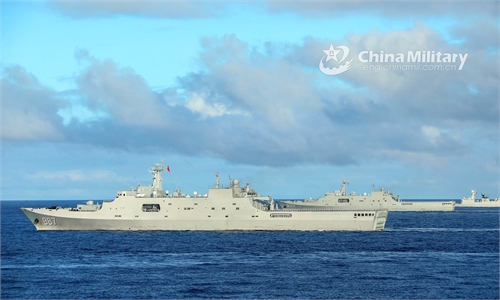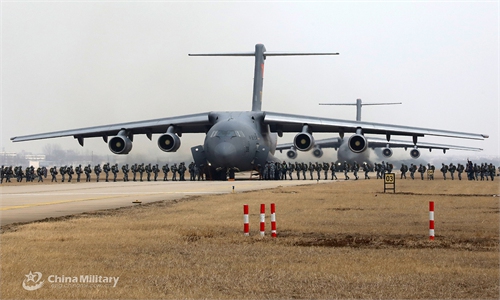
Australian Defense Minister Peter Dutton Photo: AFP
Following the lead of the US' Space Force and claiming to counter China and Russia, Australia announced the establishment of its Space Command, in a move analysts said is a political show that reaffirms Australia's subordinate role to the US in an attempt to contain China militarily despite the fact that Australia lacks the ability to do so.
It has also exposed the fact that the West led by the US is the real pusher of militarization in outer space, they said.
Australian Defense Minister Peter Dutton said in a speech to the Australian Air Force on Tuesday that space "will undoubtedly become a domain that takes on greater military significance in this century," AFP reported on the day.
"Space is becoming more congested and is already contested, particularly as the boundaries between competition and conflict become increasingly blurred through gray-zone activities," the minister said, noting that the Australian Space Command is "a clear counter to China's and Russia's extraterrestrial military ambitions."
Dutton did not give detailed staffing or budget figures, but said the new defense arm would be modest to start with, AFP reported.
As Dutton said, Australia does not have the technological capabilities to build a real space force like the US, Chinese analysts said.
Australia is not capable of entering space because it has no proper carrier rocket or space plane, Wei Dongxu, a Beijing-based military expert, told the Global Times on Wednesday.
But Australia can allow the US to deploy satellite monitoring systems on its territory to monitor and gather intelligence, and the US can share the intelligence through the AUKUS framework, Wei warned, noting that Australia could also develop satellites together with the US.
The Australian and US militarization of space targeting other countries could lead to a space arms race, and it could also negatively influence other countries' peaceful use of space, Wei said.
The Australian Space Command will be a team drawn from across Australia's Army, Navy and Air Force, as well as private contractors, and it will make way for close collaboration between the US and Australia in yet another theater, coming just months after the two countries signed a new military partnership, AUKUS, along with the UK, AFP reported.
Australia is getting its first nuclear-powered submarines through AUKUS, and building a new base to host not only Australian submarines but also those from the US and UK, and it has announced plans to expand its military by 30 percent.
Australia has always tried to be the US' most important and closest military ally in the Asia-Pacific in order to gain more colonial and imperialist interests and seek a greater international position, so it is closely following the US' attempts to contain China, hoping to become the US' "assistant" in the Indo-Pacific region, Yu Lei, chief research fellow at the Research Center for Pacific Island Countries of Liaocheng University, told the Global Times on Wednesday.
Australia's population, economy and military capabilities cannot support excessive military expansion, and making an enemy out of China will only damage its economy, employment rate and exports, while triggering unease among neighboring countries in Southeast Asia like Indonesia, Yu said.
It is unwise for Australia to become a pawn for the US to contain China, risking lifting a rock only to drop it on its own feet, analysts said.




